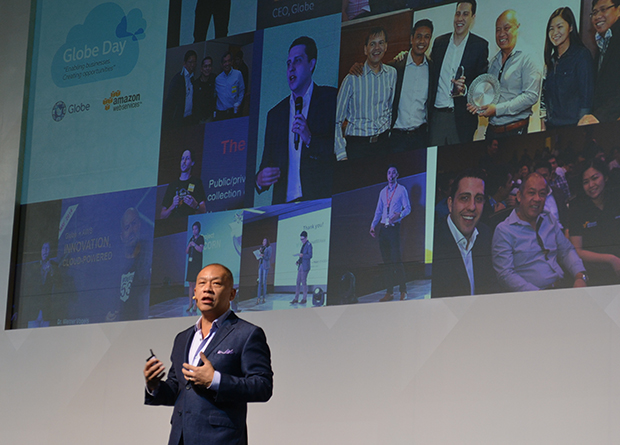Globe Telecom urges the government to prioritize internet infrastructure to enable businesses to build on their capabilities and support domestic economic growth amid robust digitization of various industries.
“In addition to enhancing and improving access to education, government services, entertainment and social media, a robust internet infrastructure provides tremendous opportunities for business and greatly impacts economic growth,” said Globe President & CEO Ernest Cu.
“This is something the government can help by providing the right regulatory environment as we build an internet infrastructure that would develop ICT capabilities of local industries for stronger economic growth and wonderful Philippines.”
According to Cu, the government can expedite legislation to mitigate bureaucratic red tape and other political hurdles that stand in the way in the deployment of telecommunication and broadband infrastructure, such as cell sites.
Specifically, an Open Access Law for the telco industry would expedite the issuance of all the relevant permits for all telecommunications facilities at the local government level.
Telecommunication companies are required to secure several permits, said Cu, adding that Globe has about 500 cell sites waiting to be built at any given time.
“Prioritizing the Open Access law for the telco industry would help fast track fiber builds that will increase internet access and speeds in the country,” said Cu.
Cu is also advocating for the immediate harmonization and equitable distribution of the 700 megahertz of frequency to sufficiently provide for rapidly increasing data traffic amid growing smartphone use in the country.
He emphasized that the use of the 700 MHz will help improve internet speed in the country.
The proposed harmonization is supported by ITU, which maintains that utilization of the frequency will help bridge the digital divide worldwide.
The organization formally moved to allocate the 700 MHz band to the global mobile industry at the 2015 World Radiocommunication Conference (WRC-15) in November last year.
The ITU’s move on the 700 MHz spectrum is supported by the GSMA, which said that maximizing on the unused 700 megahertz (MHz) mobile frequency spectrum can potentially increase the impact of a country’s gross domestic product (GDP) by tenfold.
The group’s Mobile Economy Asia study also found that the full use of the spectrum has the potential to create an additional 2.1 million jobs for the Asia-Pacific region by 2020.
The London-based GSMA is an association of nearly 800 operators and more than 250 companies in the broader mobile ecosystem, including handset and device makers, software companies, equipment providers and Internet companies, as well as organizations in adjacent industry sectors.















































































































